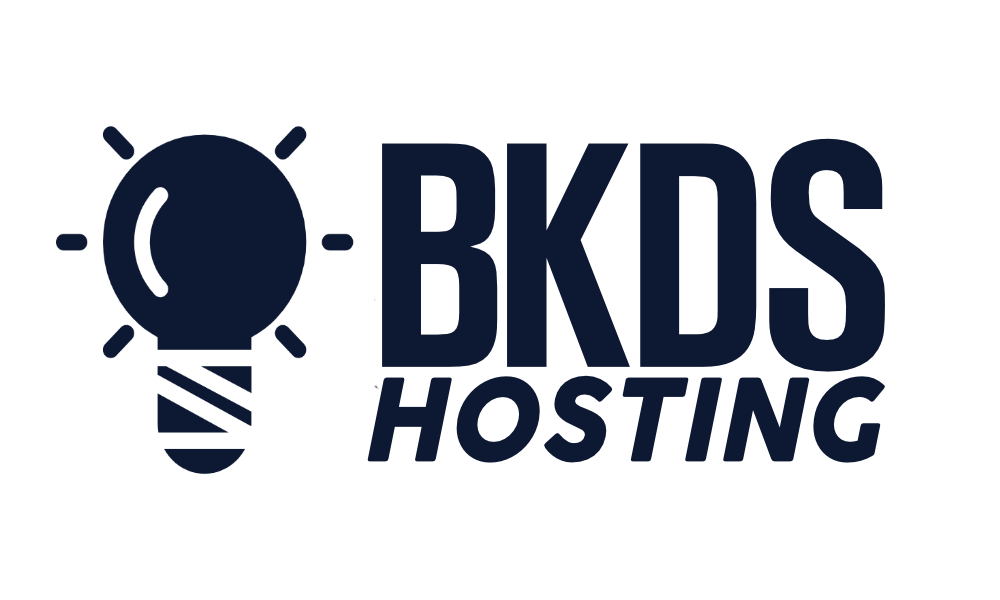In today's digital age, the security of web hosting services is a paramount consideration for any business or individual establishing an online presence. A myriad of cyber threats lurk in the shadows of the internet, eagerly waiting to exploit any vulnerability they can find. Therefore, understanding and implementing the top security features offered by web hosting services is not just an option, but a necessity. From regular data backups to DDoS attack prevention, these features play a critical role in safeguarding your website and maintaining its credibility. As we unpack these top ten security features, you'll gain insights into their significance and learn how to leverage them effectively in your own web hosting journey.
Understanding Web Hosting Services

In order to fully comprehend the intricacies of web hosting services, it is essential to delve into the diverse types of hosting available, namely shared hosting, dedicated hosting, managed hosting, and VPS hosting, each of which presents unique features and varying degrees of suitability for particular business needs. Shared hosting, for instance, is a cost-effective solution for small-scale businesses as it involves multiple websites sharing server resources. Dedicated hosting, on the other hand, offers an entire server for a single website, ensuring maximum server resources and superior performance.
Understanding web hosting services goes beyond just knowing the types. It is equally crucial to be aware of the top 10 security features in web hosting services, including data backups, DDoS attack prevention, and malware detection and removal, among others. These features, when properly implemented, ensure the safety of the website and the data it holds.
Choosing the right hosting plan and provider, considering various security features, and understanding the importance of web hosting security are integral to maintaining a secure web hosting environment. Through this understanding, businesses can leverage the benefits of web hosting services while ensuring their digital assets are safeguarded.
Importance of Secure Web Hosting
Building upon our understanding of the diverse types of web hosting services and their security features, it becomes pertinent to underscore the significance of secure web hosting, particularly in protecting sensitive information and maintaining the integrity of websites. The importance of secure web hosting is vast, as it provides a bulwark against unauthorized access, malware attacks, and DDoS assaults, thereby ensuring the continuous operation of websites and the maintenance of brand reputation.
In a world increasingly plagued by cyber threats, a secure web hosting environment is not just desirable but necessary. It employs a robust layer of security features, including but not limited to SSL certificates, password management systems, and secure file transfer protocols. These elements facilitate data encryption and secure transmission, enhancing the overall security apparatus of websites.
Furthermore, secure web hosting incorporates continuous monitoring and regular security audits, contributing to a proactive defense strategy. Selecting a web hosting provider known for strong security features and effective incident response capabilities is integral to creating a fortified web presence. In essence, secure web hosting is a critical component of modern web management, underlining its position in the top 10 security features in web hosting services.
SSL Certificates: Your First Defense

SSL Certificates form a fundamental layer of security in web hosting services. They play a crucial role in protecting data transmission, implementing robust security measures, and enhancing overall website performance. Understanding their significance and proper implementation is vital for any organization aiming to maintain a secure online presence.
Importance of SSL Certificates
Undoubtedly, SSL certificates play a pivotal role in web hosting security, serving as the primary defense by encrypting data transmissions between a user's browser and the website, thereby ensuring safe and secure communication. These certificates symbolize the importance of data privacy and security in the digital era.
- Protection of Sensitive Information: SSL certificates shield sensitive data from unauthorized access, epitomizing their importance in the realm of web security.
- Maintaining Site Integrity: SSL certificates ensure the integrity of your site, preventing any form of data manipulation or corruption.
- Boosting Brand Reputation: The presence of secure Sockets Layer (SSL) certificates assures users of their data safety, which, in turn, enhances your brand's reputation.
Incorporating SSL certificates is a best practice that signifies the importance of data confidentiality and integrity.
Implementing SSL Certificates
In the landscape of web hosting security, the proper implementation of SSL certificates emerges as the initial line of defense, ensuring encrypted data transmission between users' browsers and the website. The benefits of a free SSL certificate not only include secure access but also instill trust in the user, elevating the credibility of the website. This security in web hosting is paramount to maintaining customer data integrity. However, simply implementing an SSL certificate isn't enough. It's essential to ensure that the certificate is kept current and that all website connections are properly configured to use it. This necessitates regular renewal and maintenance, further cementing the SSL certificate's position as a vital component in the arsenal of web hosting security measures.
SSL Certificates and Security
Building upon the critical role of SSL certificates in web hosting security, we now turn our attention to understanding the broader implications and functionalities of these certificates as the first layer of defense in a well-rounded security strategy.
- SSL certificates and security go hand in hand. These digital certificates encrypt data transmission, making it an uphill task for hackers to intercept and manipulate data.
- SSL certificates also enable the use of HTTPS, a protocol that not only enhances web security but also boosts SEO performance.
- Some web hosting services offer SSL certificates for free as part of their package. This highlights the importance these services place on security features in web hosting services.
Innovative and secure web hosting is now a necessity, not a luxury.
Managing Passwords Effectively

While it may seem like a minor detail, effectively managing passwords is a crucial aspect of web hosting security. This includes using unique, complex passwords, implementing two-factor authentication, regularly updating passwords, utilizing password management tools, and educating users about best practices.
Unique and complex passwords greatly reduce the risk of unauthorized access, providing one of the core security features in web hosting services. Implementing two-factor authentication adds another layer of protection, making it harder for cybercriminals to gain access even if they somehow crack the initial password.
Regularly updating passwords is another vital measure. The longer a password remains unchanged, the higher the risk of it being compromised. Hence, frequent changes are advised.
Password management tools can assist in managing passwords effectively by securely storing and auto-filling them. This reduces the risk of human error while ensuring that passwords are both complex and unique.
Lastly, educating users on best practices for creating and maintaining strong passwords is a must. Users should understand the importance of password security and be encouraged to follow these guidelines.
Secure File Transfer Protocols (SFTP)
Notably, Secure File Transfer Protocol (SFTP) serves as a crucial security feature in web hosting services, primarily due to its ability to encrypt file transfers, thereby enhancing the overall security.
- Encryption: The secure file transfer protocol uses encryption to provide an extra layer of security. This feature is essential in preventing unauthorized access to sensitive data during transfers between a computer and the server. It ensures that the data is unreadable to any entity that might intercept the transmission.
- Accessibility: SFTP is not an exclusive feature, as it is available even in Shared Hosting plans. This accessibility enables developers and those performing hosting migrations to take advantage of its security benefits easily.
- Data Integrity: File Transfer Protocol (SFTP) ensures data safety and integrity during file transfers. It verifies that no changes or corruption occurred during the transfer process, guaranteeing the reliability of the data.
Using SFTP provides a secure method for uploading and managing website files. Adopting this protocol is a step forward towards innovation and enhanced security in web hosting services. Thus, SFTP proves to be an indispensable tool for ensuring the secure and accurate transmission of data.
Detecting and Removing Malware

In the realm of web hosting services, the frequent detection and prompt removal of malware are paramount for maintaining a secure digital environment. A comprehensive Malware Protection strategy is critical, utilizing specialized tools and services for robust malware detection and removal. This not only ensures the integrity of web content but also safeguards sensitive data and enhances user trust.
Web application firewalls and continuous network monitoring are integral components in detecting and removing malicious software. Their implementation provides a sturdy defense line, proactively securing the hosting environment against potential threats. Regular scanning and monitoring are also vital, as they enable early detection and prompt removal of malware, reducing the risk of severe impact.
In the case of VPS hosting, additional measures may be required to ensure optimal malware protection. Tools such as Immunify 360 and SShield have been specifically designed to counter threats like adware, spyware, viruses, and data exfiltration, rendering them invaluable for maintaining a malware-free environment. In conclusion, the ability to detect and remove malware efficiently is a critical security feature in any web hosting service, warranting substantial attention and investment.
Monitoring Your Network
As an essential aspect of web hosting security, continuous network monitoring serves as the frontline defense in identifying potential security threats, ensuring the early detection and mitigation of issues such as Distributed Denial-of-Service (DDoS) attacks. This task requires sophisticated monitoring tools that not only detect such threats but also provide actionable insights for timely response.
- Regular Server and Network Monitoring Tools: Providers should implement tools like New Relic, which offer comprehensive monitoring for Virtual Private Servers (VPS) or dedicated servers. These tools enhance web host security by continuously observing server performance and network activities, aiding in the early detection and resolution of potential threats.
- Uptime Monitoring Solutions: Web hosts should use tools like Freshping to receive instant website downtime notifications. This constant surveillance enables web hosts to maintain maximum website availability, offering a seamless user experience.
- DDoS Prevention Mechanisms: Network monitoring should also include mechanisms for detecting and mitigating DDoS attacks. Early detection can drastically reduce the potential impact of such attacks, preserving the integrity and performance of the web hosting service.
Defending Against DDoS Attacks

In the context of web hosting services, defending against Distributed Denial of Service (DDoS) attacks is a crucial security feature. Effective DDoS prevention methods, such as the implementation of robust firewalls and the use of Content Delivery Networks (CDN) with Web Application Firewall (WAF) support, can significantly mitigate the adverse impacts of these attacks. Regular monitoring of server performance and network traffic, coupled with the deployment of malware detection and removal tools, further bolsters the security framework against potential threats.
DDoS Attack Prevention Methods
Given the pervasive threat of Distributed Denial of Service (DDoS) attacks to website functionality and uptime, it is critically important to comprehend their nature and implement effective prevention methods.
To mitigate DDoS attacks, web hosting services must incorporate robust DDoS protection features. Here are three effective measures:
- Regular traffic monitoring: Detecting anomalies helps identify potential DDoS attacks early.
- Deploying a Web Application Firewall (WAF): Tools like Cloudflare CDN are crucial in deflecting DDoS threats.
- Using advanced DDoS prevention features: Some web hosts offer these for enhanced security.
Understanding and implementing these safeguards can help ensure a secure hosting environment, thereby reducing the potentially catastrophic impact of distributed denial-of-service (DDoS) attacks.
Impact of DDoS Attacks
Facing the brunt of a DDoS attack can have severe implications for a website, disrupting functionality, causing significant downtime, and potentially leading to substantial financial losses. The impact of DDoS attacks extends beyond mere inconvenience; they threaten the very viability of digital platforms, establishing the urgency for robust protective measures. Web hosts are now recognizing the necessity of advanced DDoS prevention features, offering them as a critical component of their service packages. These protective measures, which often utilize technologies like Cloudflare CDN for Web Application Firewall (WAF), are not just add-ons but essential tools in the fight against DDoS attacks. Understanding the nature of these attacks is the first step in effectively mitigating them, underscoring the importance of continual innovation in security features.
The Role of Secure Operating Systems
While managing the security aspects of web hosting services, one must not overlook the pivotal role secure operating systems play in restricting user access to sensitive information and server resources. Choosing the Operating System is a critical decision that must take into account the specific needs of the website and its security.
- Restricting Access: Secure operating systems come equipped with robust access control mechanisms. They prevent unauthorized access to critical server resources, thus ensuring the confidentiality of sensitive information.
- Inherent Security Features: Secure operating systems have in-built security measures. These include encryption algorithms, firewalls, and intrusion detection systems. These features enhance website security by creating a formidable defense against potential cyber threats.
- Regular Updates and Patches: Reputable secure operating systems frequently release updates and patches to fix potential vulnerabilities. Keeping the operating system updated is a proactive way to mitigate risks and maintain an optimal security posture.
Choosing the Right Web Hosting Service

The process of selecting a web hosting service should be approached with an emphasis on security features, as they play a crucial role in safeguarding both the website and its data. Evaluation of hosting options should consider aspects such as malware protection, monitoring, secure file transfer protocols, and DDoS attack prevention measures. A comprehensive understanding of these elements will not only ensure optimal security but also contribute to the overall performance and reliability of the website.
Evaluating Hosting Options
In the realm of web hosting, one must meticulously evaluate various options such as shared, dedicated, managed, and VPS hosting, each offering distinct features and security measures tailored to your website's specific needs and your technical proficiency.
- Shared Hosting: Cost-effective but may lack certain top 10 security features in web hosting services. Ideal for small-scale websites.
- Dedicated Hosting: Offers optimum control and security. Suitable for large businesses needing secure hosting.
- Managed Hosting: Provides comprehensive management and security, perfect for those without technical expertise.
When evaluating hosting options, consider the level of security each type provides, the ability to restrict access to sensitive information, and the availability of SSL certificates and malware protection. Your choice should align with both your budget and security requirements.
Importance of Security
Having meticulously considered various hosting options and their respective security measures, it becomes apparent that the selection of a web hosting service replete with robust security features is not just a preference, but a critical necessity in our increasingly interconnected digital landscape. The importance of security in web hosting services cannot be overstated. It safeguards your data, maintains the integrity of your brand, and mitigates risks associated with data breaches and malware attacks.
| Aspect | Importance | Top 10 Security Features |
|---|---|---|
| Unauthorized Access | Prevents intrusions | Robust password management |
| Malware Attacks | Protects data | Regular backups, malware protection |
| DDoS Attacks | Maintains service availability | DDoS defenses |
| Data Breaches | Safeguards sensitive info | SSL certificates, secure file transfer protocols |
Innovative security measures such as these not only ensure a secure environment but also add value to your web hosting service.
Conclusion
In conclusion, a secure web hosting service plays a pivotal role in protecting a website from various threats. Implementing security features such as SSL certificates, secure passwords, SFTP, network monitoring, and DDoS attack prevention is crucial. Furthermore, the choice of a secure operating system enhances the overall security. Therefore, selecting a web hosting service with comprehensive security measures is imperative to maintain the integrity and functionality of a website.

